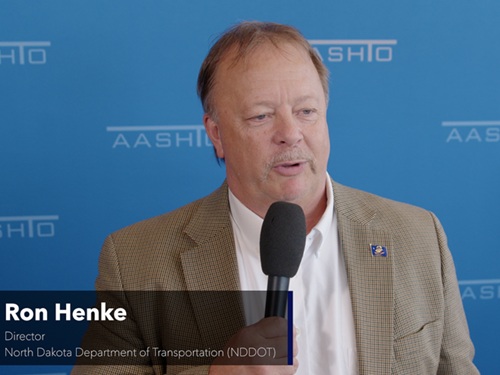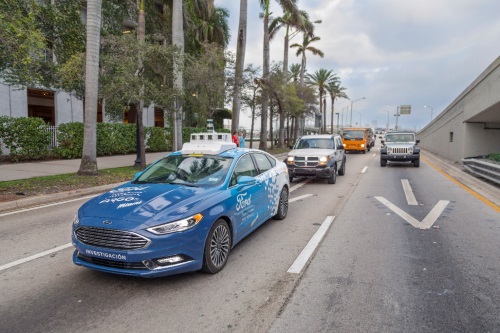The world is “in the midst of a truly revolutionary era in transportation,” according to U.S. Secretary of Transportation Elaine Chao, with the development of drones and autonomous vehicles just two of many new technologies that offer the potential to increase safety while creating new goods and services.
[Above photo by Ford Motor Co.]
“They also have the potential to increase mobility for traditionally underserved communities, including people with disabilities and the elderly,” Chao noted in a speech she originally planned to give at the World Economic Forum annual meeting last month in Davos, Switzerland, before the White House revamped the delegation attending that conference. “But the public has legitimate safety, security and privacy concerns about these new technologies that must be addressed.”

For example, she said USDOT is studying the question of drone security and asking the public to make recommendations for consideration on improving the security of these new technologies.
“We also strongly encourage the developers of new autonomous technologies to step up, and demonstrate to the public the benefits, reliability and safety of these new technologies,” Chao stressed. “Without education to gain public acceptance, autonomous technologies will never reach their full potential.”
[Editor’s note: Chao made similar points in her speech at the 2019 Transportation Research Board’s annual meeting in Washington D.C. on Jan. 14.]
She added that it is also “imperative” that government keep up with the rapid pace of change of such “emerging technologies,” so to do that more effectively, USDOT is creating an “inter-modal technology council” to address technologies – such as drones and self-driving vehicles – that have applications across many modes.
“This is important because it is increasingly evident that new technologies pose regulatory questions that cross several different modes,” she said. “The new council will expand [USDOT’s] ability to respond and adapt to the inter-modal transportation revolution.”
 Nation
Nation
North Dakota DOT Profiled in State DOT Update
July 3, 2025 Nation
Nation

